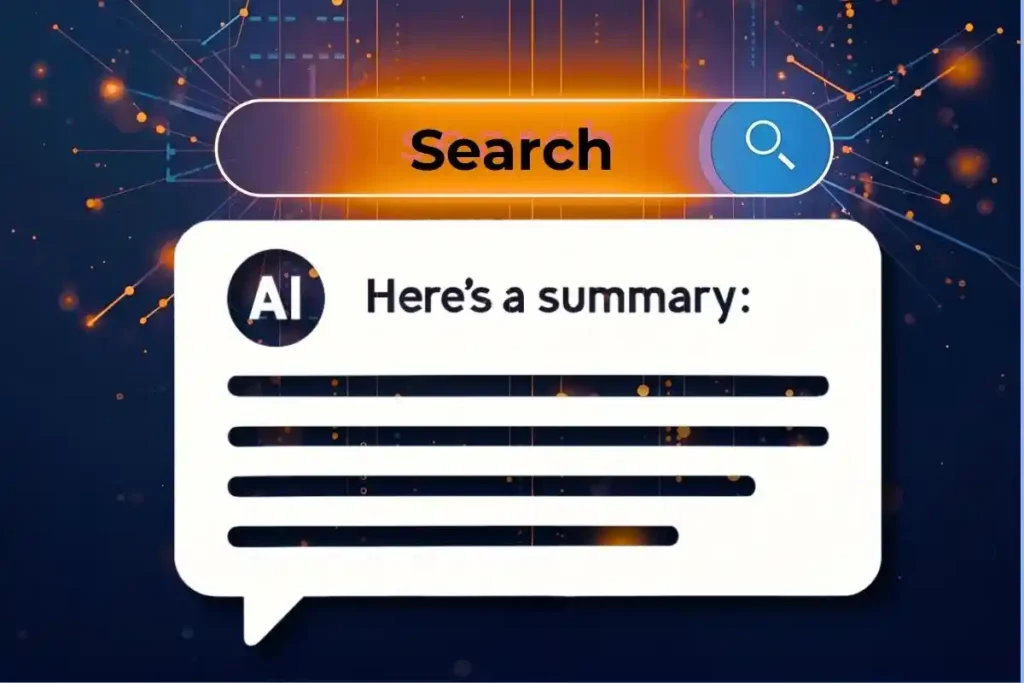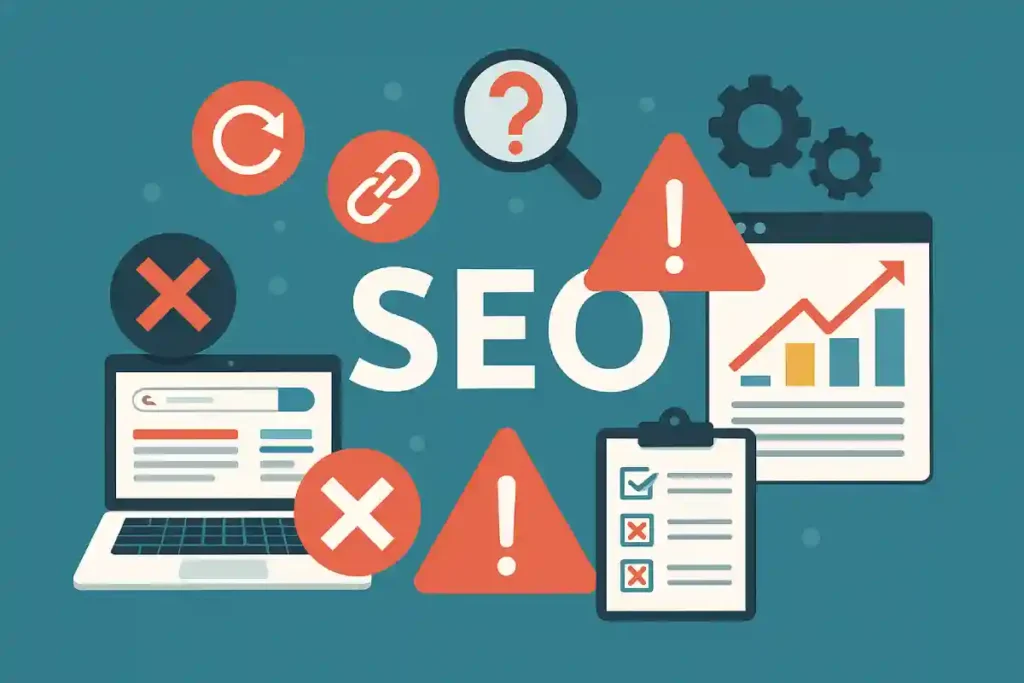Search is going through its biggest transformation since Google was born. With the rise of AI-powered answers—like Google’s AI Overviews, ChatGPT, Perplexity, and other generative engines—traditional SEO alone is no longer enough. People are no longer just clicking through the top 10 links. Instead, they’re getting answers instantly, summarized by AI.
This shift has created a new challenge (and opportunity) for creators, bloggers, and businesses: Generative Engine Optimization (GEO).
In this article, you’ll learn:
- What GEO really means
- How it’s different from traditional SEO
- Why it’s critical in 2025
- Practical steps you can take to optimize your content for AI-driven search

What Is Generative Engine Optimization (GEO)?
Generative Engine Optimization (GEO) is the process of optimizing content so it can be cited and highlighted by AI-driven answer engines.
Instead of just ranking on a search engine results page (SERP), GEO focuses on making sure your brand or blog is mentioned when AI tools generate answers.
For example:
- Google’s AI Overviews could include a summary of your article within its generated answer.
- ChatGPT or Perplexity might cite your blog as a reference.
- Future AI-driven browsers may show your brand name directly inside an answer box.
In short:
- SEO = Optimizing for Google rankings.
- GEO = Optimizing for AI answers.
Why GEO Matters in 2025
1. Rise of AI Overviews & Chatbots
More people are using AI assistants instead of browsing multiple websites. If your content isn’t optimized for GEO, your brand may disappear from visibility.
2. Zero-Click Search Explosion
Research indicates that more than half of all searches now finish without the user clicking on any result. According to Statista, zero-click searches have been steadily increasing over the last few years. With AI providing instant answers, this trend will only grow. GEO ensures your content still gets cited, even when no clicks happen.
3. Building Authority & Trust
When AI consistently references your blog, it positions you as a trusted authority in your niche. This visibility builds credibility faster than backlinks alone.
4. First-Mover Advantage
Most creators haven’t started working on GEO yet. Getting ahead now gives you a competitive edge that compounds over time.
GEO vs SEO: What’s the Difference?
| Traditional SEO | Generative Engine Optimization (GEO) |
|---|---|
| Optimizes for Google rankings | Optimizes for AI answers (ChatGPT, Perplexity, Google AI Overviews) |
| Focus on keywords | Focus on context, clarity, and semantic depth |
| Backlinks = authority | Data credibility & E-E-A-T = authority |
| SERP clicks matter | AI mentions matter |
| Optimized for crawlers | Optimized for Large Language Models (LLMs) |
How to Optimize for GEO in 2025
1. Write Clear, Structured Content
AI models prefer content that’s easy to summarize.
- Use bullet points, numbered lists, FAQs, and tables.
- Break down complex ideas into simple definitions.
👉 Example: Instead of one long paragraph, explain “SEO mistakes” in a list format so AI can pick up clear points.
2. Add Authoritative Sources
AI tools value credibility. Link to trusted research and data.
- Cite studies, surveys, or government reports.
- Use outbound links to authoritative sources like Google Search Central, Ahrefs, or Statista.
3. Strengthen E-E-A-T (Experience, Expertise, Authoritativeness, Trustworthiness)
Google and AI assistants are increasingly evaluating who is behind the content.
- Add an author bio with credentials.
- Show real-world experience (case studies, personal insights).
- Make your content transparent and trustworthy.
👉 Example: On shakirazim.com, you can showcase your expertise as a blogging & SEO strategist, which increases your authority in AI answers.
4. Use Schema & Structured Data
Schema helps AI and search engines understand your content better.
- Add FAQ schema to your blogs.
- Use Article, Author, and HowTo schema where relevant.
- Using structured data helps your content qualify for rich results and increases its chances of being used by AI-generated answers.
5. Create Content That’s Easy to Summarize
Generative engines pull short, precise statements.
- Use clear definitions: “Generative Engine Optimization (GEO) is the process of optimizing content for AI answer engines.”
- Add a FAQ section at the end.
- Keep sentences concise and avoid fluff.
Practical GEO Strategies for Creators in 2025
Target Conversational Queries
Instead of only writing for “SEO mistakes,” also answer:
- “What are the most common SEO mistakes?”
- “How do I fix SEO errors in 2025?”
AI assistants love direct Q&A content.
Repurpose Content for AI Engines
- Turn blogs into FAQs, guides, and structured posts.
- Summarize key points in bullet lists.
Leverage Internal Linking
GEO works best when your site has strong content clusters. For example, you can connect this article to my guide on Content Strategy for Creators: How to Grow Your Blog & Brand (2025 Guide)
Optimize for Voice & Conversational Search
Many AI answers come from voice-style questions (e.g., “What is GEO in SEO?”).
- Add natural, conversational phrasing to your posts.
FAQ: Generative Engine Optimization (GEO)
Q1: Is GEO replacing SEO?
No. GEO doesn’t replace SEO—it expands it. SEO is still critical for Google rankings, but GEO ensures you appear in AI-driven answers.
Q2: How can small creators adapt to GEO?
Focus on structured, trustworthy content with clear answers. Even small blogs can be cited by AI if the content is well-optimized.
Q3: Do backlinks still matter for GEO?
Yes, but credibility, clarity, and E-E-A-T matter more. AI tools don’t just look at links—they evaluate whether your content is authoritative.
Q4: How do I know if my content is GEO-friendly?
Check if your content:
- Is easy to summarize
- Uses structured data
- Answers user questions clearly
- Cites reliable sources
Conclusion: GEO Is the Future of SEO
Generative Engine Optimization isn’t just a short-lived trend—it represents the next stage in the evolution of search.
If SEO gets you clicks from Google, GEO makes sure your brand is mentioned inside AI answers. The future of visibility lies in mastering both.
👉 Start now: update your blogs, add structure, cite sources, and strengthen your authority. Early adopters of GEO will dominate the AI-driven search landscape in 2025 and beyond.
Want expert help in building a GEO-friendly content strategy? Connect with me at shakirazim.com and let’s grow your digital presence together.



